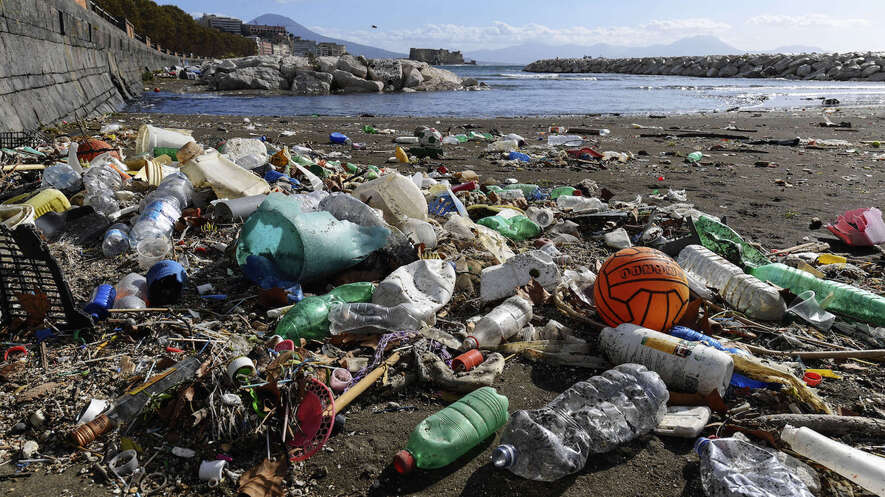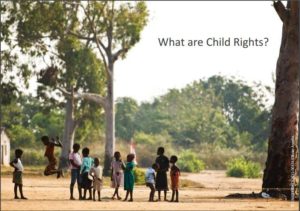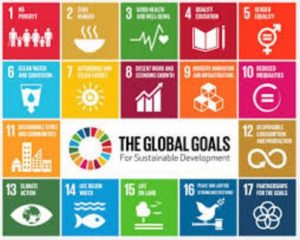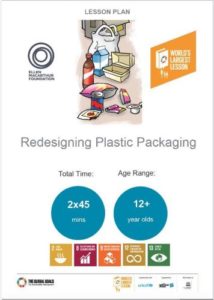Creating global projects got me thinking about the groundwork that should be covered before the connections with strangers can become a viable means to exploring global perspective. Finding global projects to explore the world through experiences that spark curiosity and intercultural opportunities is not difficult. The challenging part is building inter and intrapersonal skills beforehand; the skills to ensure mutual kindness, empathy, and deep learning. If trust and respect are not formed, collaborations are destined to be somewhat superficial and shallow attempts to build global competency. This requires considered preparation. I found a website that is designed to foster meaningful connections among students, by doing just that-attending to the soft skills that are essential for successful global collaboration.
Our society needs urgent attention
I live in Australia and am grateful to have my parents, aged 89 and 96, living at home. The thought of them going into aged care fills me with fear. Our most vulnerable and senior members of society are treated with less respect than our pets.
“Elderly people deserve the highest respect. This includes quality healthcare, to allow for the best quality of life for the people who have helped build the society we currently enjoy.” Dr. Paloma Gómez-Campelo, a psychologist and researcher, Assistant Director of the Hospital La Paz Institute for Health Research.
A society is measured by how it cares for its elderly citizens.
Our society needs urgent attention.
Reducing single use plastic
Kids

We hold great hope that this summer we will exercise more, holiday close to home, save money, and learn new skills. This summer, enlist your family or friends in a group resolution: to reduce your single-use plastic waste.
Think of it as a resolution to shed some kilos. Scientists estimate that some 8 billion kilograms of plastic waste flows into the oceans every year. And as passionate planet protectors eager to find a tangible way to help save the planet, kids are likely to stick to this resolution.
Here are three ways to resolve to use less plastic as a family.
Have More Fun
Planning a birthday party or holiday celebration? Resolve to have a plastic-free party.
Unleash your creativity on decoration duty. Replace balloons with cut-out paper decorations like bunting, streamers and confetti. Marine animals can mistake balloons for food. If you were planning to celebrate with glitter, consider purchasing a natural option made of eucalyptus plants. Glitter is, unfortunately, just pieces of plastic.
Eat Healthier
Resolving to shop smarter is healthier for you and the planet.
Try to avoid snacks that come wrapped in individual plastic. Instead, grab popcorn kernels and banana chips from the bulk section of the store. Shop with reusable bags for whole fruits and vegetables. Grab some canned beans and fill a bring-your-own container with a grain (like couscous or brown rice) from the bulk section.
Back at home, families can cook a meal free from single-use plastic. If fish is on the menu, use an online guide like Seafood Watch that takes into account the practices used to catch that type of fish, in order to cut down on the harm caused by abandoned fishing gear.
Save Money
We all want to resolve to spend less money, and plastic is a great place to start. Host a toy swap with your friends instead of purchasing brand-new items. And don’t forget about the plastic packaging that engulfs almost all items that you purchase online — consider your plastic resolution when you want to shop online.
Get creative! Think of ways to give old pieces of plastic a new job (and avoid buying a new item), like using newspaper sleeves to pick up pet poo.
Can you think of more ways to reduce single use plastic?
with thanks to Allyson Shaw, National Geographic Text
I’ve learnt a lot about Australia in the last 48 hours.
I‘ve realised our country accommodates two distinct populations. There’s the urban community clustered around the big cities on the eastern seaboard and there’s the rural community scattered far and wide around the country. The second group of people is trying their darndest to look after our land. We are facing less of an offering each decade-arable land for food, a climate that is conducive to growing the crops and sustaining the animals that we like to eat and a population willing and able to be the custodians of the land for the rest of us. When making a living for your family to pay your bills and put food on your table, saving the planet is not your focus.
We ignored opportunities to sustainably address the needs of everyone, especially those who feed the city dwellers. Remember the ‘feed a man fish story’? Governments reactively give money to those who suffer the firestorms, droughts and flooding rains, when what they needed was a proactive partnership to find new action plans and sustainable ways to meet the needs of all in Australia. We have been governed by greed and consumerism and then ignored the consequences. We found people in other lands willing to work for and produce that, which we would not. We smuggly pay the lowest price for goods. We continue to gouge the earth looking for an export to exchange for money or those cheap goods, while governments allow corporate bodies to avoid paying their share for organising this. Our entitlement to whatever we can acquire has claimed our balance with the land.
What a surprise (should you be unaware what is happening) or not (if you’ve worked it out) we have been dealt with the result of the Federal poll on Saturday. No one wants to have less money to spend. Concurrently, there’s a growing group of people who don’t know where their next dollar will come from. Around the big cities we have chosen to ignore the effects of the climate that’s changed because of our own footprint. We might be hanging on to an eroding coastline but we’ve got money to plaster it up. Join the dots Australians. We do not exist in a consumer void. Someone else suffers but in the longer term we all suffer.
It’s not even a case of the HAVES and the HAVE NOTS. The reality is we’re all losers.
I heard it said this was the climate election. I guess that’s true.
Peace go with you
Australians have had a long battle coming to terms with difference. I have been thinking about peace…not the peace that occurs in non-war zones, but the peace that comes from within and towards each other. I’d like to refer to the recent Invictus Games, held in Sydney, Australia.
Each competitor had incurred physical and mental injuries as part of their role in a zone of conflict. These people have reason to be stained with negative feelings, with disappointment of being robbed of a usual life, with difficulty in connecting with others.
What I saw in the media and on television was celebration of their achievements, compassion and love for their fellow competitors and a fierce national pride at representing their country in their chosen sport, if not in conflict for their country. We often neglect to recognise those who fought to save our freedom, but somehow sport gives us the opportunity to cheer, to wonder at achievement, to honour those same men and women.
An unconditional acceptance of the uniqueness of all people is fundamental to living in harmony with others. The Invictus Games gives us the opportunity to reflect on the sacrifices made on our behalf by the courageous human beings who have found some peace within themselves. Their differences in ability have been overshadowed by their determination and effort to challenge stereotypical attitudes to people with disability.
It seems that until we know who we are and can cope with the fact that individuals have differences in ability we will wallow in a shallow existence with the people we live with. Peace reigns with acceptance of each other.
Marilyn can be contacted at marilyn@bethinkglobal.com.au
You can read more at Bethink Global
To subscribe to receive global news for the global educator. please submit your details below
Error: Contact form not found.
Child Rights
Next year it will be thirty years since the ratification of The United Nations Convention on the Rights of the Child – a human rights treaty which sets out the civil, political, economic, social, health and cultural rights of children.
G iven the current issue in the USA, of border crossing and of children being separated from families, I thought it timely to look at the Convention.
iven the current issue in the USA, of border crossing and of children being separated from families, I thought it timely to look at the Convention.
Article 9 states children should not be separated from their parents unless harm or safety is an issue.
In child friendly terms it says, “You have the right to be with your parents unless it is bad for you.
You have the right to live with a family that cares for you.”
Every five years Australia reports to the United Nations on how Australia is meeting its international obligations to children-how Australia is progressing or not progressing in terms of meeting its obligations to children in Australia under international law.
This year, the Australian Human Rights Commission, led by National Children’s Commissioner Megan Mitchells, will report to the UN Committee on the Rights of the Child about Australia’s progress in meeting its child rights obligations by 1 November 2018. The Committee monitors Australia’s implementation of the Convention on the Rights of the Child, and its optional protocols on the sale of children, child prostitution and child pornography, and on the involvement of children in armed conflict.
Plate PioneerZ for SDG impact
Are your stud ents Plate PioneerZ who make food choices to positively impact on the Goals? From healthy eating to reducing wastage, eliminating plastic packaging, sourcing closer to home and checking on the practices of food producers, children can roll up their sleeves and dig into Goals 2, 3, 13, 14, and 15. And not forgetting a call to them to fearlessly stand up for the children that are hungry right now and need our help.
ents Plate PioneerZ who make food choices to positively impact on the Goals? From healthy eating to reducing wastage, eliminating plastic packaging, sourcing closer to home and checking on the practices of food producers, children can roll up their sleeves and dig into Goals 2, 3, 13, 14, and 15. And not forgetting a call to them to fearlessly stand up for the children that are hungry right now and need our help.
Delving into sustainable agricultural practices, the impact on health, well being and having livelihood that enables choice, social interaction, economic independence, cultural longevity, all come from and provide healthy eating.
Bethink Global offers more about global citizenship. If you would like further information about the use of the SDG’s to enhance global citizenship contact Marilyn or should you like to receive the Bethink Global newsletter let me know by filling out your details below.
Error: Contact form not found.
from The World’s Largest Lesson
It’s time to power Melbourne’s trains with renewable energy
Rapid improvements in wind, solar and energy storage are not only transforming the energy system, they are key to decarbonising the transport system too.
In January 2017, the Victorian government announced Melbourne’s iconic trams will soon be solar powered, with construction of two new solar farms near Shepparton and Robinvale in the state’s north now underway. Once complete, every tram trip will be cutting greenhouse gas emissions and creating regional jobs.
Now that the city’s trams will be solar powered, the next logical step is to power the trains with renewable energy too.
Melbourne’s train network is the second largest energy user in the state, after Alcoa’s aluminium smelter in Portland. It’s no wonder – moving over 400,000 people everyday requires a significant amount of energy. This is energy that should be coming from clean renewable sources, not polluting fossil fuels like coal and gas.
Renewable energy can form the foundation for good regional jobs, and a clean, efficient 21st Century transport system that is good for the climate and human health.
While Melbourne snatched global headlines with the solar trams announcement, we’re certainly not alone. Cities, states and even entire countries are now looking to power their transport systems with renewable energy.
The Dutch national railway company NS announced last year that the Netherlands’ entire train network is now running on wind energy.
News that Victoria’s Laverton Steelworks will source electricity from the Numurkah solar farm proves that renewable energy can power large energy users.
Transport is the second largest and fastest growing contributor to Australia’s greenhouse gas emissions. We can use the technological improvements in renewable energy and in the rail network to cut emissions in both, and make trains and trams the most sustainable transport mode.
While the federal government has turned it’s back on action on climate change, states like Victoria can show the leadership the community wants to see. Melbourne can be a world leader in renewable powered transport.
Melbourne’s solar trams are proving that renewable energy can power mass transit – it’s time to power our trains with renewable energy too.
The New Plastics Economy and the classroom
In 2015, 193 countries committed to achieving the 17 Sustainable Development Goals (SDGs) of the United Nations. The extent to which that vision becomes a reality will in no small way depend on what is happening in today’s classrooms. Indeed, it is educators who hold the key to ensuring that the SDGs become a real social contract with citizens.
Today my discussion is about plastics. The topic is enormous as is the issue for our planet. It’s too big for any one country to tackle and requires a global partnership.
Students could pose questions from a viewing of this video and discuss actions they and their families could take. Could they create a community awareness program for their school?
Finally, here’s is a lesson from the World’s Largest Lesson on redesigning plastic packaging.
For secondary students, this could be adjusted for younger learners and provides open ended, project based opportunities to enhance global competences towards global citizenship.

Marilyn Snider can be contacted at marilyn@bethinkglobal.com.au
Find out more at Bethink Global
Grow good kids
Most parent I know want their children to grow up kind, caring, honest, generous and respectful of differences. It’s good for them and for our world. Fortunately, solutions are not complicated.
This article stems from the US scene but its relevance is global. It has some simple steps for parents to take to grow empathy in their children whilst combatting the negative influences that seem to hover over our shoulders on a daily basis.
Take Action to Step Outside Our Bubbles – And Grow Good Kids

Among the big lessons the U.S. election of 2016 taught the world, it’s that Americans don’t understand each other. Polls and pundits hadn’t figured out what was under our noses all along: that we have been living in separate bubbles, with little or no experiential overlap.
Within each bubble, one side is deemed ignorant, irrationally religious, or racist; while the “other side” is viewed as elitist, too soft, or morally lax. You know who you are – or who you aren’t.
When we fail to get to know those who look, dress, speak, cook, worship, work, have fun, see the world, spend money or consume media differently than ourselves, it’s hard to build empathy for them. They become a statistic, a member of a confounding group, objectified. Our treatment of others is more likely to be informed by generalizations, not personal experience.
Separateness even affects us neurologically, as parts of our brains fail to light up when someone we don’t relate to suffers. The result might be apathy, as well as fear, anxiety and loneliness, just to name a few side effects.
This isn’t how I want to raise my children. Despite the antagonism, divisiveness, and greed that seems to dominate the headlines, I want them to grow up kind, caring, honest, generous and respectful of differences. It’s good for them and for our world. Fortunately, solutions are not complicated.
Small Steps Toward Empathy Make a Big Difference
I’ve been researching the most effective means for thriving in a global economy and how to raise global citizens for almost two decades.
Despite the complexity of the big picture, time and time again, the solution seems to lie in the little things: How we treat the cashier at the grocery store and the types of stories we choose to read at bedtime spill over into how we see the whole world.
Since our children are watching us, these small gestures become their model of behavior, shaping our kids’ wider social environments. Indeed, a pro-social, empathy-rich environment doesn’t just feel safer to be in, it’s been shown to enhance children’s cognitive ability.
With years of exposure to acts of kindness and images of diversity, the ability to think creatively, communicate more effectively, analyze, and empathize beyond a limited bubble is enhanced significantly. This is how “soft” skills become the sought-after skills of 21st-Century learning and global problem solving.
5 Ways to Step Outside Our Bubbles and Grow Good Kids
Approaches for stepping outside our bubbles might be as diverse as a family’s daily routine, so I offer these ideas as a simple beginning.
1. Start with stories. The fact that a great story can transport us to a new adventure or a far-off locale points to the power of stories for breaking out of our shell.
President Obama recently told the New York Times: “At a time when so much of our politics is trying to manage this clash of cultures brought about by globalization and technology and migration, the role of stories to unify — as opposed to divide, to engage rather than to marginalize — is more important than ever.”
For Multicultural Children’s Book Day, Black History Month or any day, make a conscious effort to choose stories to read or listen to as a family that start with a perspective that might differ from yours.
Consider posting a world map on a wall, or keep a quality World Atlas handy, and mark all the places you’ve read stories from. Conscious of the travels of your imagination, you might not only stretch your curiosity, but also your geography.
2. Gain a sense of being part of the larger human family. It’s difficult to imagine beyond our confines if we never think about it or “see” what it looks like.
Family-friendly films from around the world, as well as picture books showcasing the diverse lives of children from classic Children Just Like Me to my new favorite, The Barefoot Book of Children, allow readers of any age to step inside the homes, foods, games and interests of children around the world. Vivid images help create connections and light up that region of the brain that triggers empathy for others.
3. Gently peek into the practices and teachings of diverse faiths. As I’ve discussed elsewhere, you don’t need to attend a long or unfamiliar religious service to start to appreciate a different faith.
Visit an art museum with collections inspired by those traditions. Listen to their music or chanting. Read short passages of their sacred texts. Learn perspectives of various parents through blogs or ideally, in person, informally. Read children’s stories like Prince of Fire: The Story of Diwali, Golden Domes and Silver Lanterns, and many others for a gentle introduction.
4. Enrich libraries near or far. When my friend Maggie saw The Barefoot Book of Children for the first time, she decided to donate copies to area libraries around her rural hometown in central Pennsylvania, an area where few residents travel outside the United States or get exposure to global cultures.
Reading a beautiful book shouldn’t be just for privileged children, and it might have the power to start bursting some bubbles. Helping “seed” a school or public library with diverse and multicultural books is powerful; involving our children in the project can also get them excited about choosing titles to donate.
5. Show moral courage/Be an upstander. With the rise in anxiety and tension within schools and public places since the 2016 U.S. election, there is a critical need to show moral courage, to stand up for those who may be targeted for their differences. How can we and our children have empathy for and stand up for those who might be different from ourselves?
You might ask this at the dinner table or in morning meeting at school. This short video recounts what it might look like for an adult to use one’s privilege in a daily experience. Good stories, like The Boy Who Grew Flowers, also can illuminate moral courage. This literature list for all grades includes additional helpful titles.
As we embark on a journey of growing our understanding about diverse cultures and ways of thinking, we’ll discover many more creative steps for breaking out of our bubbles, at any age. It’s good for our kids and it’s good for our world.
